A nationally recognized forensic science expert will be speaking twice next week at MTSU as a part of the university’s National Women’s History Month activities.
Towson University associate professor Kelly Elkins, co-director of Towson’s Human Remains DNA Identification Laboratory, will speak at 6 p.m. Wednesday and Thursday, March 2-3, both in Science Building Room 1003.
MTSU chemistry professor and WISTEM (Women in STEM) director Judith Iriarte-Gross invited Elkins to speak, bringing a National Women’s History Month talk on March 2 and then a NWHM forensic science discussion March 3.
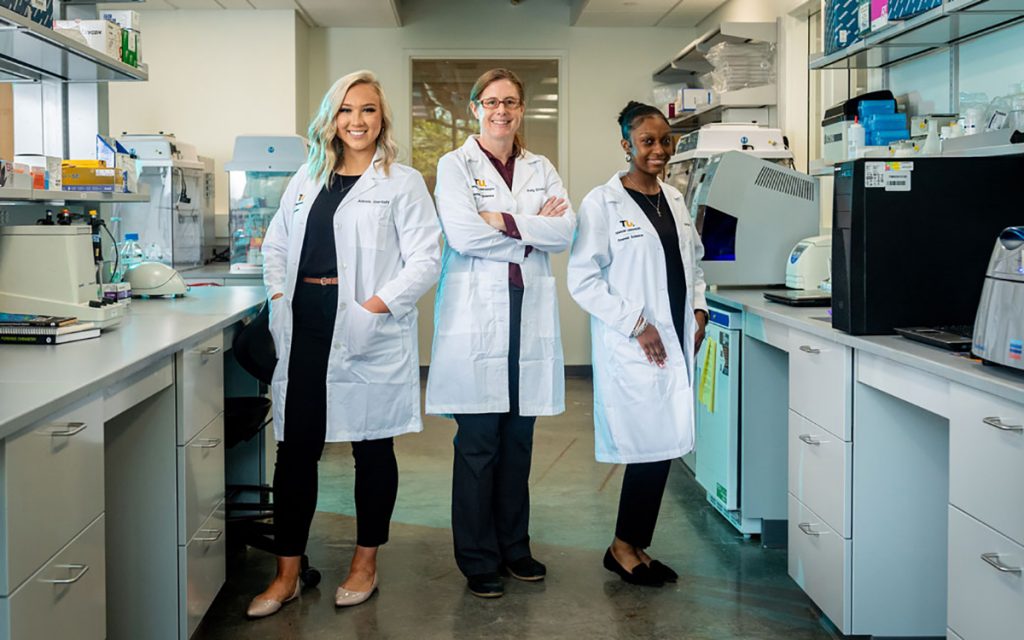
Associate professor Kelly Elkins, center, helped open the Towson University Human Remains Identification Lab in 2018. In that time, she has mentored current students Alexis Garloff, left, and Jordan Brooks in forensic chemistry and DNA recovery. Elkins will appear at MTSU Wednesday and Thursday, March 2-3, speaking at 6 p.m. on National Women’s History Month and forensics topics in the Science Building. Both talks, in Room 1003, are free and open to the public. (Photo by Alex Wright/Towson University)
Elkins’ March 2 talk will be on “Embracing and Advancing, Diversity, Equity, Inclusion and Respect in the Chemical Sciences.” She likely will touch on the American Chemical Society’s new Office of DEIR (Diversity, Equity, Inclusion and Respect).
Her science-related March 3 presentation is on “Next Generation Sequencing in DNA Analysis of Historic Period Human Remains.”
Both talks are free and open to the MTSU community and public. Because of the pandemic, masks are recommended inside the Science Building.
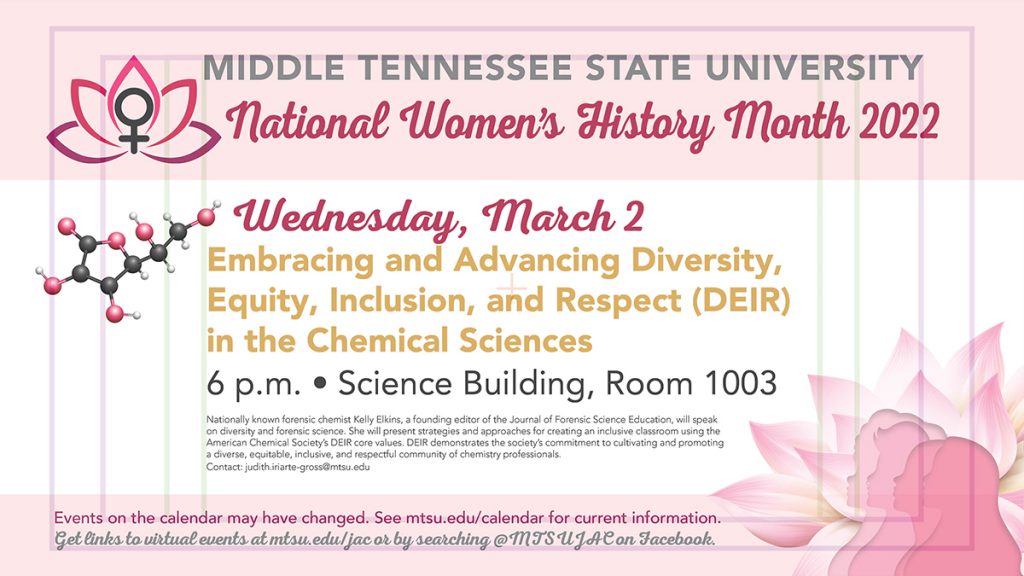
To watch Elkin’s March 2 talk online, follow these steps: Zoom link: Embracing and Advancing Diversity, Equity, Inclusion, and Respect (DEIR) in the Chemical Sciences- Wednesday, March 2 at 6:00 pm (Meeting ID: 880 1631 8935; Passcode: 995561).
To watch her March 3 talk online, follow these steps: Zoom link: Next Generation Sequencing in DNA Analysis of Historic Period Human Remains- Thursday, March 3 at 6:00 pm (Meeting ID: 886 5149 9280; Passcode: 579232).
At the Maryland university, Elkins is one of three editors in chief for Towson’s “Journal of Forensic Science Education” and a co-editor for an American Chemical Society series book, “International Ethics in Chemistry: Development of Common Values and Ongoing Communications of Cross-cultural Codes.”
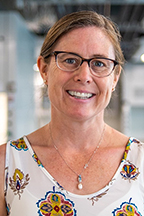
Dr. Kelly Elkins
The forensics expert, who Iriarte-Gross considers a role model for aspiring scientists, said “students interested in entering the field of forensic science should seek a strong education in a field of science. Crime labs hire scientists for positions ranging from crime scene investigators to lab analysts to technical leads and administrators.
“CSIs need to know the capabilities of the lab and how to best collect and package the evidence for presentation to the lab. In order to specify lab tests to identify and differentiate submitted evidence samples, they need to know the strengths, limitations and limit of detection of the instruments and assays.”
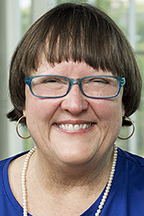
Dr. Judith Iriarte-Gross
Elkins “has given talks all around the world,” Iriarte-Gross said. “That shows she’s well-respected for her knowledge in forensics and for her passion for diversity in the sciences.”
Iriarte-Gross said her students are excited about the prospects of meeting and hosting Elkins.
The MTSU Science Building is located at 440 Friendship St. Off-campus visitors can access the parking map here.
For more information about both events, contact Iriarte-Gross by calling 615-904-8253 or email Judith.Iriarte-Gross@mtsu.edu. Chemistry and forensics are College of Basic and Applied Sciences departments and programs.
— Randy Weiler (Randy.Weiler@mtsu.edu)
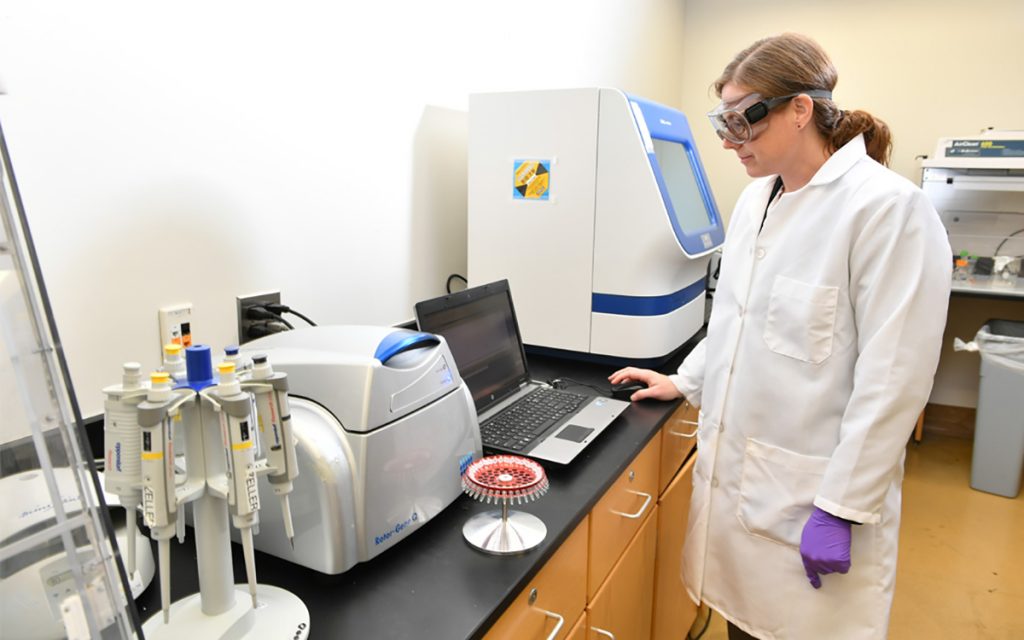
Towson University associate professor Kelly Elkins, co-director of Towson’s Human Remains DNA Identification Laboratory, checks test results. Elkins will speak at MTSU March 2-3, discussing a National Women’s History Month topic on March 2 and talking about forensics on March 3. Both 6 p.m. talks will be in Science Building Room 1003, and free and open to the public. (Photo by Towson University)
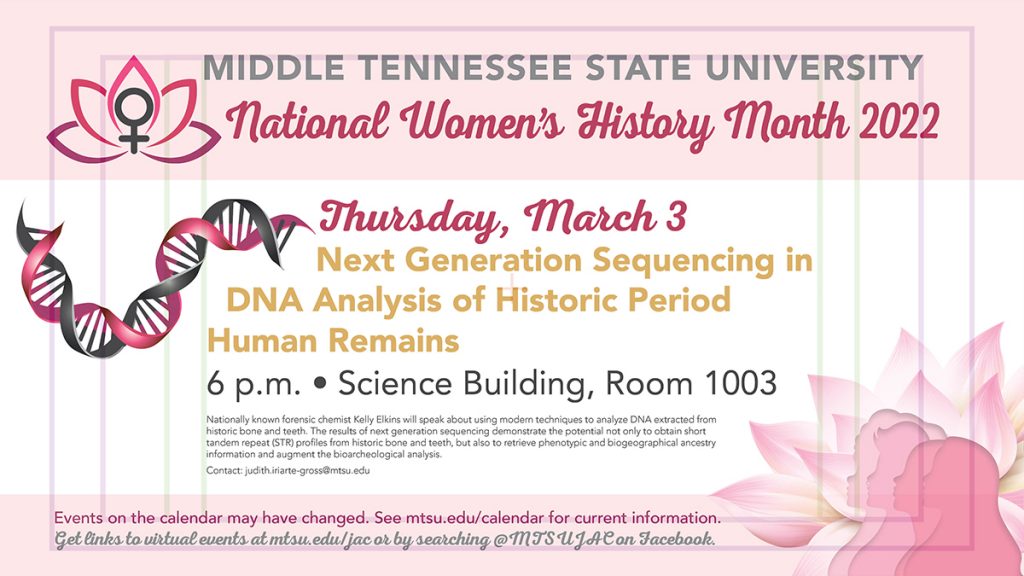

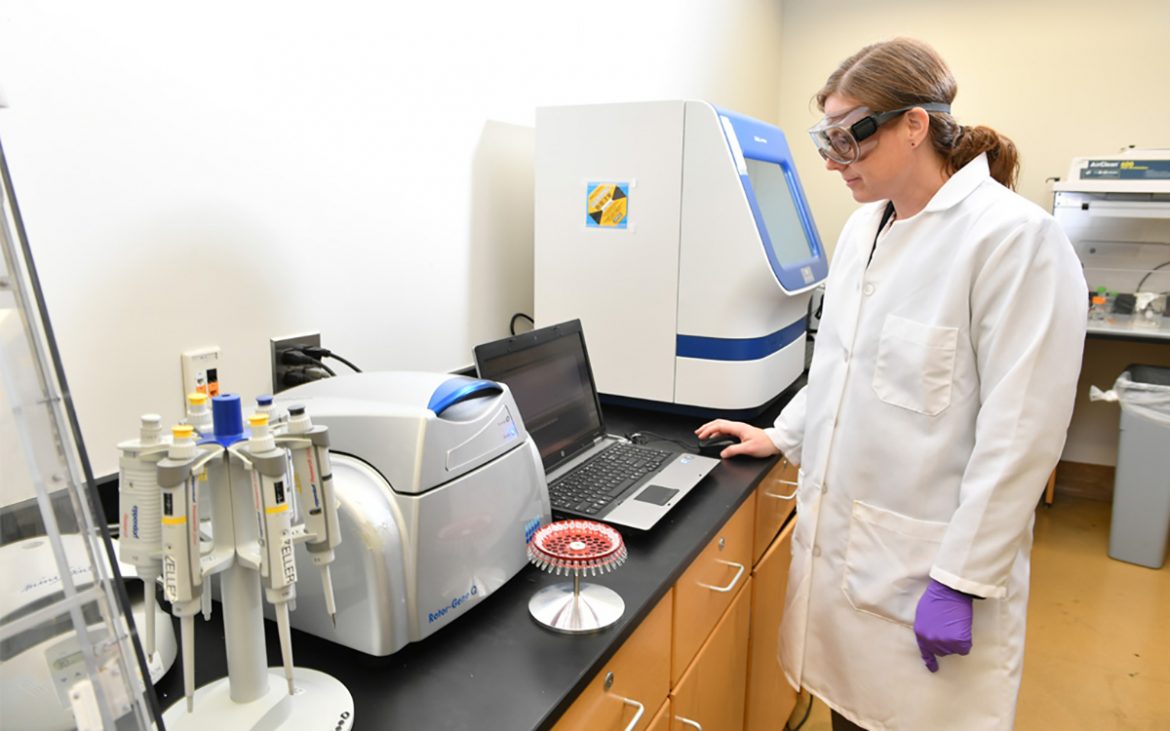
COMMENTS ARE OFF THIS POST